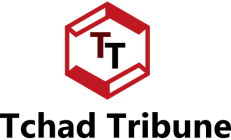Nigeria is leading the way in Africa in health innovation and pandemic preparedness on the continent.
Dr Jean Kaseya, the Director-General of the Africa Centres for Disease Control and Prevention (CDC) made this known during a visit to the Nigeria Centre for Disease Control and Prevention(NCDC), on Wednesday at the headquarters, in Abuja.
Kaseya was accompanied by the Coordinating Minister of Health and Social Welfare, Prof. Muhammed Pate.
He said that through this visit, the Africa CDC aimed to strengthen collaborations and partnerships, share expertise, and shape a healthier future for the country, region and on the continent.
He acknowledged the role played by President Bola Ahmed Tinubu in choosing Pate, for its clear agenda and leadership in healthcare across the world.
He emphasised the immense responsibility that comes with being in a position of leadership in the country, stating that it not only affects the country but also the entire continent.
He highlighted the importance of regular consultations with the minister, even on matters unrelated to the country or Africa, as it was crucial to establish connections and gain support, aid, guidance, and information.
He expressed pride in the accomplishments of Nigeria’s healthcare system, including NCDC and its widespread recognition.
He commended the efforts of individuals like Dr Chikwe Ihekweazu, Assistant Director General of the World Health Organization, whom he referred to as an ambassador for the country, and emphasised the need for continuous collaboration and support on the continent.
He stressed the urgency of pandemic prevention and response, citing evidence of new outbreaks occurring on the continent.
He pointed out that 70 per cent of these outbreaks were zoonotic, highlighting the importance of a One Health Approach that involves multiple ministries working together.
He praised countries like Botswana for elevating the coordination mechanism on One Health to the Vice President level, suggesting that Nigeria should consider a similar approach.
Furthermore, he emphasised the need for African heroes to be celebrated and recognised.
He highlighted the discovery of the Omicron variant by an African scientist using equipment provided by African CDC.
He also praised Nigeria’s emergency operation centres and encouraged other countries to learn from Nigeria’s approach to avoid fragmentation.
He expressed support for the vision of local manufacturing and medical industrialization, emphasizing the need for Africa to be self-sufficient in meeting its healthcare needs.
He acknowledged the challenges of medical consumption and the need to develop programs that allow African countries to support one another.
He, however, expressed his commitment to return and continue supporting Nigeria’s healthcare system, emphasising the importance of Africa’s readiness for future pandemics.
He disclosed that the vision of the Africa CDC was building a resilient health system for Africa focusing on 4C’s.
“These are Community: Community involvement; Connectivity: A strong digital connectivity; Cash: Financial Resources;Commodities: Vaccines, medicines, and Diagnostics,” he explained.
The DG emphasised the importance of discussing these proxies with the Nigerian Minister of Health and highlighted how they align with its agenda in the country.
By mentioning funding, he acknowledged the need for adequate financial resources to support healthcare initiatives.
“This includes exploring domestic resources and finding ways to secure funding for health-related projects.
“The mention of commodities highlights the importance of manufacturing and producing essential healthcare products within Africa. This emphasizes the need for self-sufficiency and reducing reliance on external sources for critical medical supplies.
“The reference to communities emphasizes the significance of a strong and well-supported health workforce. This includes investing in training, capacity building, and ensuring the availability of skilled healthcare professionals.
“The mention of productivity and the digital agenda underscores the importance of leveraging technology and connectivity to enhance healthcare systems.
“This includes utilizing digital platforms for data collection, information sharing, and improving overall healthcare delivery,” he explained.
Also speaking, Pate stressed the need for coordination and collaboration in addressing outbreaks of infectious diseases.
The minister highlighted that infectious diseases respect no boundaries and can quickly spread across countries and continents.
“Therefore, working together with organizations like the Africa CDC and other development partners on the continent is crucial in keeping the continent safer during outbreaks,” he said
He also emphasised the interconnectedness of the world and the impact that outbreaks can have on national economies.
He mentions how diseases like Ebola and COVID-19 affected production, and other sectors, highlighting the broader implications of disease outbreaks beyond just human health.
The Minister stressed the importance of coordination within the government and various agencies involved in healthcare, such as the Federal Ministry of Health, the NCDC, the National Primary Health Care Department Agency, and regulatory bodies like the National Agency for Food and Drug Administration and Control (NAFDAC).
He provided examples of successful coordination efforts, such as the task force for diphtheria and collaboration on Lassa fever technology and its vaccine preparation in the country.
Earlier, the Director General, NCDC, Dr Ifedayo Adetifa, highlighted the agency’s priorities as strengthened collaboration with other Ministries, Departments and Agencies especially to strengthen the One Health Approach in the country.
Adetifa said that strengthening health security workforce capacity and the establishment and sustained working of Public Health Emergency Operations Centres.
Amongst others, he said were optimisation of current public health laboratory services and the further expansion of the Surveillance Outbreak Response Management and Analysis System in the country.(NAN)
Source: News Agency of Nigeria
